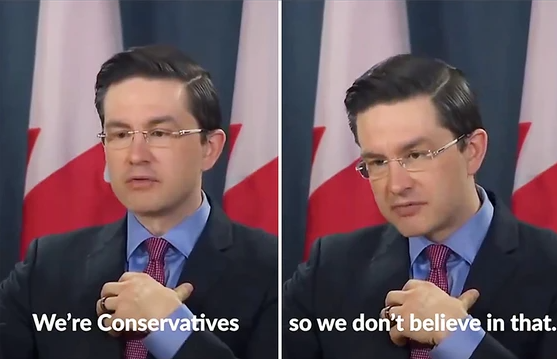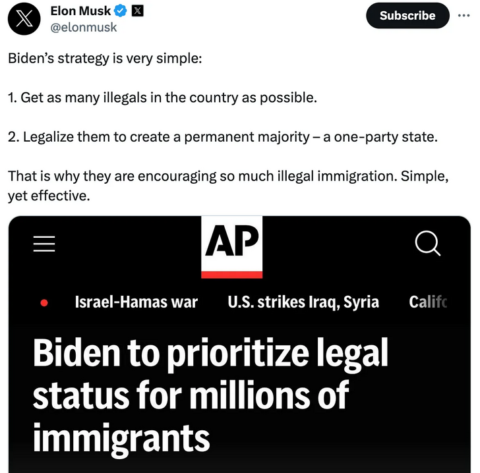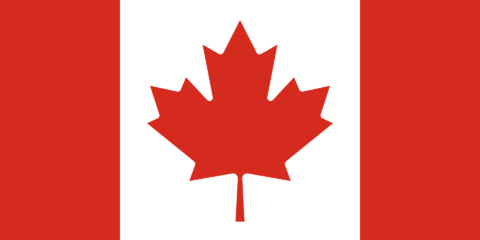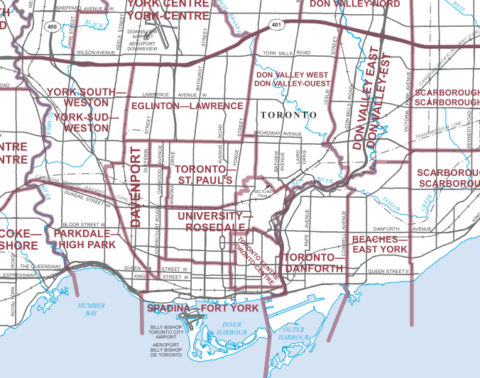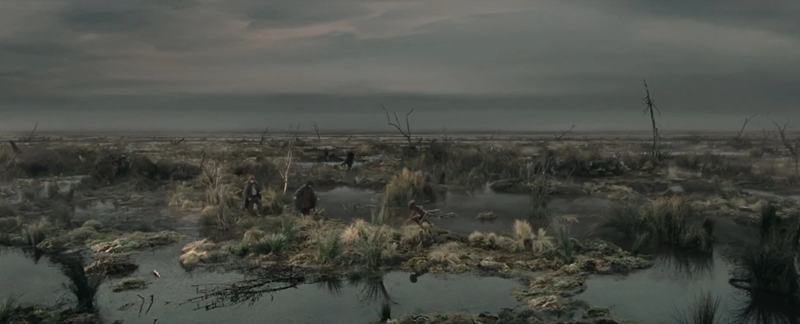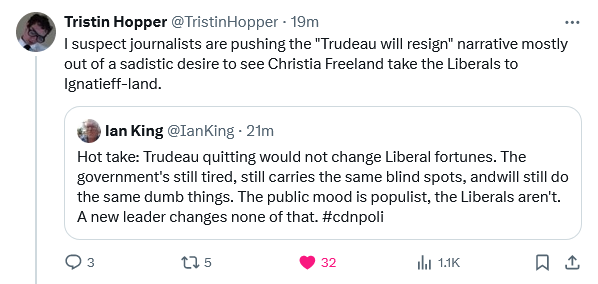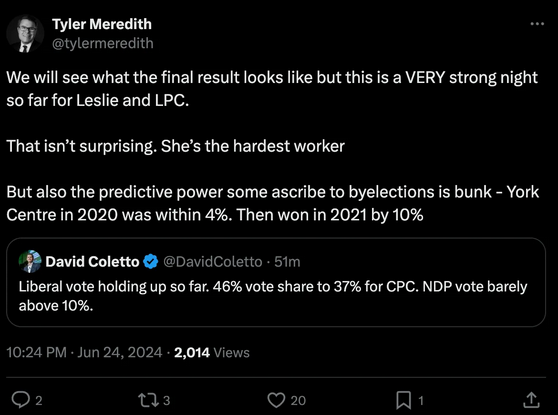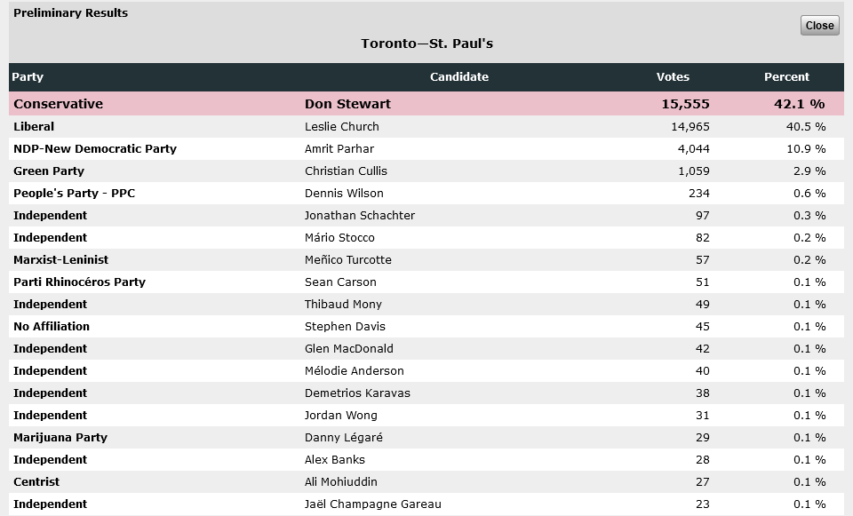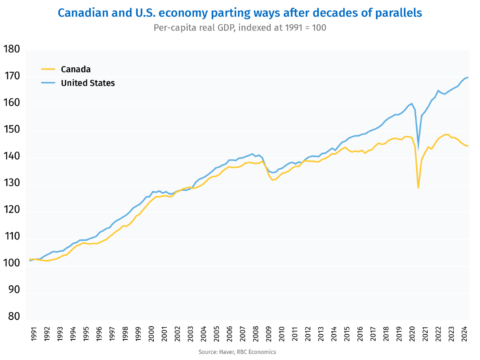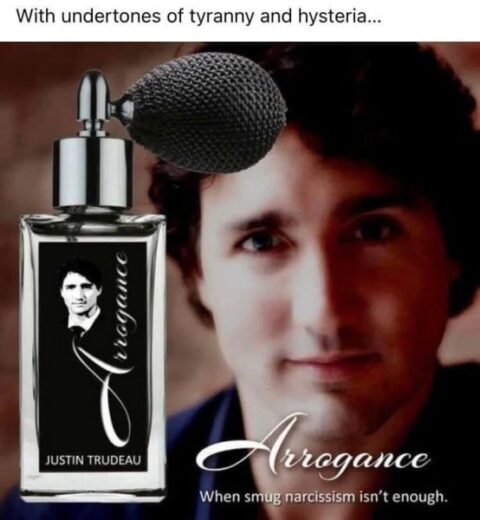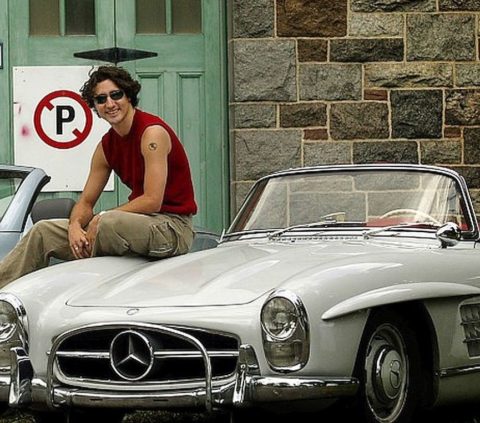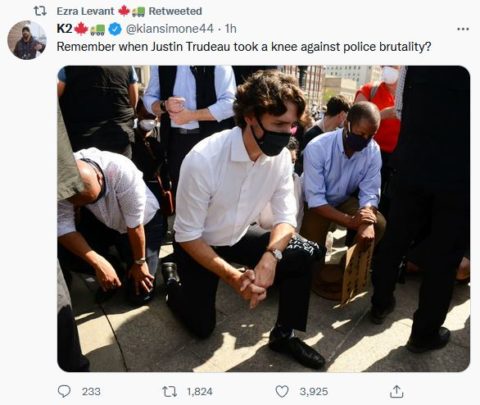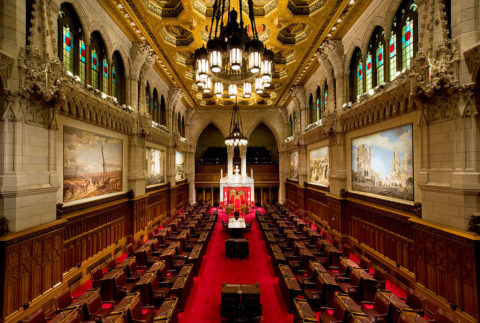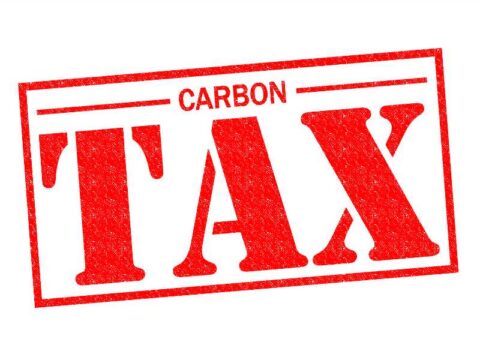If you’re new here, you may not recognize my headline as being sarcastic. Here’s Chris Selley‘s attempt to figure out what the Liberal brain trust is up to with their latest anti-Tory ad:
“The CEO of Elections Canada has indicated his opposition to it, and let me just say I’m at peace with that.”
These words, spoken by Pierre Poilievre a decade ago, are part of an absolutely bizarre 46-second video the Liberal Party of Canada released in recent days trying to convince us — a very novel approach — that the Conservative leader is too wacky and full of dangerous ideas to vote for.
Read that sentence again. It’s supposed to be a scare quote. Are you scared? Or, more likely, do you not know what the hell he’s talking about? Removed from its context it’s not just uncontroversial; it barely even exists. It’s like someone negotiating the return date on their dry cleaning, or asking for no mayonnaise on their Whopper.
There’s another quote like that in the same 46-second video: “We’re Conservatives, so we don’t believe in that”.
Believe in what? No idea. Keynesian economics? The curse of the Oak Island treasure? Could be anything.
The notion that communications is the Liberals’ “problem” is as laughable as ever, but good grief are they ever terrible at communicating.
Usually politicians take other politicians’ quotes out of context to make them look bad. Here the Liberals have done … I really have no idea what. It’s like they’re so hopelessly ensconced in their echo chamber that they can’t tell which echoes have even escaped the chamber into the real world … if the real world even still exists.
Those intimately familiar with Poilievre’s parliamentary record (which is what, maybe 90 people in the world?) might surmise, correctly, that in the first instance he was talking in his role as minister of state for democratic reform in the Harper government about Bill C-23. That was the 2014 legislation that, most controversially, toughened voter-ID requirements: Your voter-information card, delivered by mail, would no longer be sufficient proof of your identity to cast your ballot. You wouldn’t be able to “vouch” for another voter.
This was unnecessary, I felt at the time, and I might still, though the prospect of electoral fraud doesn’t make Liberal eyes roll quite as theatrically as it used to. But it seems clear the serious foreign interference in play is considerably smarter and more insidious than just sending some people to vote without proof of citizenship (which few of us offer up to vote as it stands).
Anyway, Poilievre was telling a Senate committee, on April 8, 2014, that he understood then chief electoral officer Marc Mayrand disagreed with the bill, and that he disagreed with Mayrand, and that he was “at peace with it.”
I do hope you were sitting down for that bombshell.

